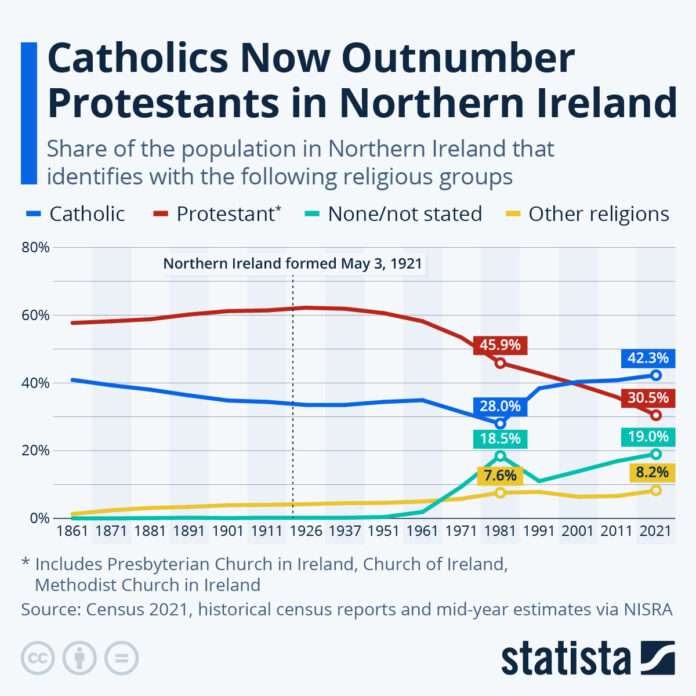There are now more Catholics than Protestants living in Northern Ireland, according to the most recent national census data, with a 42.3 percent share of Catholics to 30.5 percent Protestants, and a low 8.2 percent of inhabitants identifying as non-Christian religious.
As Statista’s Anna Fleck details below, this is in contrast to when the country was first formed back in 1921. Intended to be a Protestant majority nation, six counties had been partitioned from Ireland, based on religious data from the 1911 census. Then, 34.4 percent of what would be Northern Ireland was Catholic and 61.4 percent was Protestant, a ratio of 1:2.
Just over 100 years later, the switch has finally happened, which according to The Guardian was anticipated due to Catholic birth rates being higher.
You will find more infographics at Statista
At the same time, the number of people identifying as non-religious is growing, pointing to an increased secularization of the population. This group has grown from 13.9 percent in 2001 to 19.0 percent in 2021. At roughly one in five people, that is higher than any of the Protestant denominations in 2021 when looked at individually: Presbyterian Church in Ireland (16.6 percent) Church of Ireland (11.6 percent), Methodist Church in Ireland (2.4 percent). While all councils are more secular than they were in 2001, some are more so than others, with 30.6 percent of people in Ards and North Down council stating they are not religious, versus 7.8 percent in Mid Ulster council.
Also worthy of note on this chart is the dip in 1981. This was in the midst of the Troubles, a violent sectarian conflict that spanned from about 1968 to 1998, and was a year when a number of Catholics reportedly boycotted the question on religion in the census. This might explain why the blue line representing Catholics falters that year as the share of people opting for none/not stated rose, hitting 18.5 percent.
Where the change has been called an important milestone by those supporting the unification of Ireland, some experts say that religious identity does not necessarily equate to how people will vote if it comes to a referendum.








